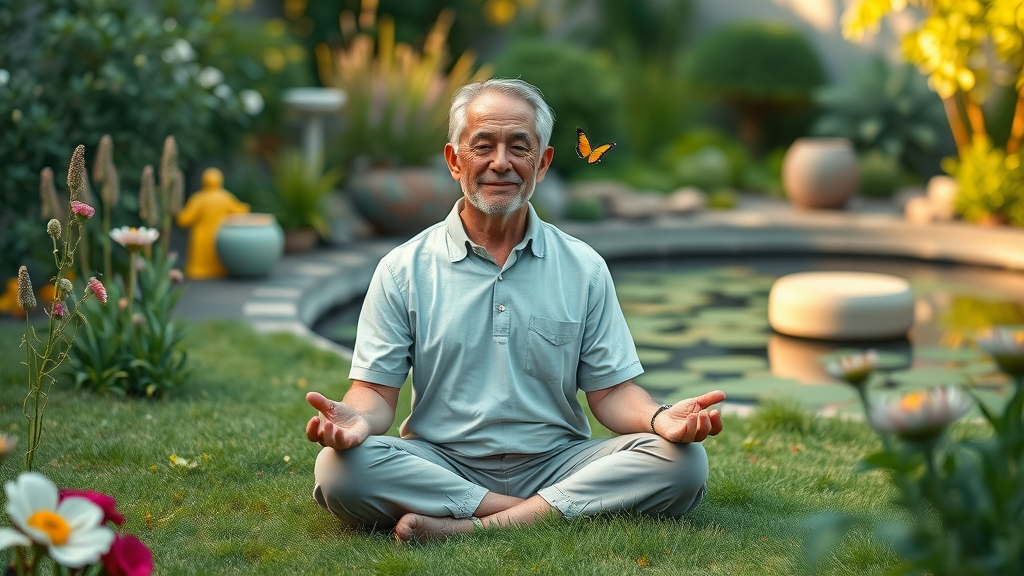Have you ever considered the profound impact mindfulness can have on your daily life? As more people discover the benefits of mindfulness, this practice is transforming lives, enhancing mental health and emotional well-being. But what exactly makes mindfulness such a powerful tool?
How Mindfulness Transforms Daily Life
Mindfulness is not just a trend but a key element for enhancing overall well-being. By integrating mindfulness into your daily life, you can experience a wide range of benefits. The practice involves paying attention to your thoughts and feelings without judgement, which helps you become more fully present in everyday moments. Whether you're experiencing stress or seeking positive change, mindfulness can play a transformative role in managing daily challenges and achieving a balanced state of mind.

Practical Examples of Mindfulness Benefits
Incorporating mindfulness into your everyday life can significantly reduce stress levels and enhance your ability to focus on the present moment. Studies show that meditation can lead to a myriad of health benefits, making it easier to reduce stress and manage negative emotions effectively.
Five Positives of Practicing Mindfulness
- Enhanced concentration and focus: Mindfulness helps sharpen your attention, allowing you to engage in tasks with greater clarity.
- Reduced stress levels: By practicing mindfulness, you can lower your stress levels and improve your overall mental health.
- Improved emotional regulation: Mindfulness encourages you to observe and accept your feelings, fostering better emotional control.
- Increased self-awareness: Gain a deeper understanding of yourself, which helps in personal development and making informed decisions.
- Better overall health: Regular mindfulness practice contributes to better overall health by promoting relaxation and reducing the risk of stress-related illnesses.

Psychological Benefits: Mindfulness and Mental Health
- Improves resilience: Enhance your ability to bounce back from setbacks with a resilient mindset.
- Boosts emotional intelligence: Mindfulness increases your capacity to understand and manage your emotions and those of others.
- Reduces symptoms of anxiety and depression: By practicing mindfulness, you can alleviate symptoms associated with anxiety and depression.
Meditation Benefits: The Comprehensive Advantages
- Promotes relaxation and restfulness: Meditation fosters a sense of calm, reducing tension and promoting restful sleep.
- Enhances self-reflection: It allows for deeper introspection, leading to personal growth.
- Fosters creativity: A clear mind opens pathways to creativity, helping you approach problems with innovative solutions.

- Strengthens cognitive functions: Regular meditation improves memory, focus, and cognitive flexibility.
- Facilitates better decision making: A calm mind can make more rational and thoughtful decisions.
- Promotes compassion: Mindfulness encourages empathy and a connection to others, strengthening relationships.
Understanding the Five R's of Mindfulness
- Recognize: Identify and acknowledge thoughts and feelings as they arise.
- Respond: Choose how to react to your thoughts and emotions thoughtfully.
- Reflect: Assess your reactions and learn from each experience.
- Reframe: Alter your perspective to view situations more positively.
- Reintegrate: Apply new insights to improve your daily interactions.

What You'll Learn About Mindfulness
- Meaningful insights on mindfulness practice: Gain a deeper understanding of mindfulness techniques and their applications.
- How mindfulness impacts lives positively: Explore the transformative effects of mindfulness on mental and emotional health.
- Ways to incorporate mindfulness in daily routines: Learn practical methods to integrate mindfulness into your everyday schedule for long-term benefits.

- Personal reflections on mindfulness: Understand the personal journeys individuals have taken with mindfulness and how it has impacted their lives.
Table: Comparison of Mindfulness Practices
| Mindfulness Technique | Benefits |
|---|---|
| Mindful Breathing | Reduces stress, improves focus, increases relaxation |
| Body Scan Meditation | Enhances body awareness, relieves tension, promotes relaxation |
| Guided Imagery | Improves visualization skills, boosts creativity, aids in relaxation |
Incorporating Mindfulness into Your Routine
Steps to Begin a Mindfulness Practice
- Set a specific time daily: Create a routine to practice mindfulness each day.
- Choose a peaceful environment: Find a quiet space where you can concentrate.
- Focus on breathing exercises: Pay attention to your breath to center your thoughts.
- Practice mindful listening: Deeply listen and engage in conversations with attention.
- Reflect on daily experiences: Dedicate time to ponder over your day's events and reactions.

Reflective Quotes on Mindfulness
“Mindfulness is a way of befriending ourselves and our experience.” - Jon Kabat-Zinn
FAQs on Mindfulness
What are 5 positives to practicing mindfulness?
Practicing mindfulness enhances concentration, reduces stress, improves emotional regulation, increases self-awareness, and promotes better health.
What are 3 psychological benefits of mindfulness?
Mindfulness improves resilience, boosts emotional intelligence, and reduces anxiety and depression symptoms.
What are the 10 benefits of meditation?
Meditation promotes relaxation, enhances self-reflection, fosters creativity, improves cognitive functions, aids decision-making, encourages compassion, strengthens relationships, eases physical pain, balances internal energy, and supports holistic healing.
What are the 5 R's of mindfulness?
Mindfulness involves Recognize, Respond, Reflect, Reframe, and Reintegrate to enhance personal growth.

Key Takeaways of Mindfulness Benefits
- Mindfulness enhances emotional health and well-being.
- Regular practice can lead to long-term mental resilience.
- Its benefits extend beyond just the individual, impacting relationships and community dynamics.

Conclusion: The Transformative Power of Mindfulness
Embrace the power of mindfulness to transform your life through emotional balance, improved mental health, and deeper connections.
 Add Row
Add Row  Add Element
Add Element 



Write A Comment